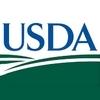Explore all the information on
Coccidiosis in poultry
Coccidiosis is a protozoal disease causing diarrhea, ,weight loss and decreased production in poultry. It can be fatal. Prevention is key and is achieved with use of anticoccidials or vaccination. Diagnosis is by fecal flotation to detect oocysts, often in combination with characteristic necropsy findings. Coccidiosis is caused by protozoa of the phylum Apicomplexa, family Eimeriidae. Most species affecting poultry belong to the genus Eimeria and infect various intestinal sites. The disease course is rapid (4–7 days) and is characterized by parasite replication in host cells with extensive damage to intestinal mucosa. Coccidia in poultry are generally host-specific, and the different species infect specific portions of the intestine. However, in game birds, including quail, the coccidia may infect the entire intestinal tract. In poultry, game birds reared in captivity, and wild birds, coccidiosis occurs worldwide.
Héctor Leyva-Jiménez (United Animal Health) talks about a technology to process pathogen profiles to identify coinfections and help make better decisions on the farm, in this interview during IPPE 2024 in Atlanta, USA....
Comments : 0
Recommendations: 0
Coccidiosis is a disease caused by Eimeria spp. and causes a negative economic impact on the poultry industry, inducing global losses over 2.4 billion dollars annually (1). Specific Eimeria spp. identified in poultry includes E. acervulina, E. brunetti, E. maxima, E. necatrix, E. praecox, E. mitis, E. tenella, E. mivatti, and E. hagani (2). Eimeria spp. colonize in the intestine from duodenum to ceca, leading to inflammation, hemorrhaging, and diarrhea. Damaged intestine caused by...
Comments : 0
Recommendations: 1
The objective of the study was to evaluate tryptophan’s functionally essential role in regulating performance, intestinal inflammation, and disease resistance during a coccidia challenge. A total of 300 two-day-old Cobb 500 broiler chickens (54.29 ± 0.284 g body weight [BW]) were group housed (5 chickens/pen; 10 pens/treatment) in battery brooders and had ad libitum access to a basal diet and water. At 7 d of age, pens were randomly assigned to 1 of 6 levels of dietary...
Comments : 0
Recommendations: 0
INTRODUCTION Avian coccidiosis is one of the most common enteric diseases of poultry, and it is caused by several protozoan parasites of the genus Eimeria (1). The disease is characterized by reduced weight gain and feed conversion efficiency and is the most economically significant parasitic infection of the global poultry industry (2). Eimeria tenella is one of the seven most prevalent Eimeria species in chickens; it is the causative agent of cecal coccidiosis, causing severe...
Comments : 0
Recommendations: 1
DESCRIPTION OF PROBLEM Avian coccidial disease, endemic across worldwide broiler production, and can be exacerbated by the reuse of litter should oocysts shed from previous flocks build up and sporulate in the current flock. Coccidial species can infect the gastrointestinal tract from the duodenum to the ceca resulting in localized tissue damage and reduced performance and without treatment, potentially result in morbidity and mortality (Chapman, 2014). The morbidity and mortality...
Comments : 0
Recommendations: 2
1. Introduction Coccidiosis is a major enteric infection of poultry that is estimated to cost more than USD 14.5 billion annual losses globally [1]. Although coccidiosis control using various anticoccidial chemicals, such as ionophores, coccidiocides, and coccidiostats, has long been a mainstream strategy in modern poultry production, alternative control strategies to antibiotics are necessary owing to the antibiotic ban [2]. Therefore, much effort has been made to develop...
Comments : 0
Recommendations: 1
Introduction Coccidiosis causes a great economic loss in the poultry industry due to high rate of morbidity and mortality, sub optimal growth and conversion efficiency and loss of egg production (1). Mortality is mostly marked in caecal form of the disease in young chicks whereas morbidity is well documented in the intestinal form of the disease in adult birds. Etiology The disease is caused by a protozoan parasite known...
Comments : 92
Recommendations: 1
Necrotic enteritis (NE) and coccidiosis are the two major economically important enteric diseases of commercial broiler chickens. Coccidiosis predisposes birds to NE by causing physical damage to the gut epithelium and triggering inflammation and immunosuppression which enhances the growth and proliferation of pathogenic Clostridium perfringens (Park et al., 2008). This study was designed to investigate the association of flock performance and genome copies (GC) of five Eimeria species (E....
Comments : 0
Recommendations: 0
I. DEVELOPMENT OF A BALANCED GUT MICROBIOTA ECOSYSTEM AND THE COMPLEX HOST –MICROBIOTA INTERACTION. In the past, investigation of the intestinal bacterial population has been done with in vitro culture techniques. These techniques are able to assess only those bacterial species that can be grown in different media in laboratory conditions. Modern approaches using molecular techniques were able to show that a significant part of intestinal microbiota was not properly...
Comments : 0
Recommendations: 0
Coccidiosis is caused by protozoa of the phylum Apicomplexa, family Eimeriidae. This disease is of worldwide occurrence and every year costs the poultry industry many millions of dollars to control. Most species affecting poultry belong to the genus Eimeria and infect various intestinal sites. The disease causes high morbidity ranging from an acute, bloody enteritis with high mortality, to subclinical disease. However, the presence of intestinal lesions depends on the Eimeria...
Comments : 0
Recommendations: 0
Coccidiosis is a disease of the intestinal lining, produced by the invasion of the mucosal cells by a very prolific protozoan parasite of the genus Eimeria. This invasion results not only in the interruption of feeding and digestive processes involved in nutrient absorption but can also cause intestinal inflammation leading to dehydration, blood loss, loss of skin pigmentation, and increased susceptibility to secondary bacterial infections like necrotic enteritis and...
Comments : 30
Recommendations: 2
Samuel Rochell (University of Arkansas) explained the results of his research on coccidiosis vaccination and its impact on nutrient digestibility, during IPPE 2018 in Atlanta, USA....
Comments : 63
Recommendations: 7
Components of Gut Health The intestine is a complex organ that comprises regions with distinct structural and physiological functions specialized in digestion and nutrient absorption. Simultaneously, the gut represents the primary contact site with foreign antigens and pathogens that can enter, reside and disseminate to the internal organs. For this reason, the gut harbors the majority of immune cells, referred to as gut-associated lymphoid tissues, when compared to other tissues....
Comments : 0
Recommendations: 3
How strategy for Coccidiosis control in broiler breeders is different from that in broilers
It is important to point out that the objectives for managing coccidia in the breeder pullets are substantially different from the objectives used in rearing broilers. In broilers, primary consideration must be given to maximizing bird performance, which is the key measurement. With the breeder pullet, however, the...
Comments : 6
Recommendations: 1
Amine Benarbia (NOR-FEED) explains the benefits of using saponin supplementation in combination with vaccines, in this interview during IPPE 2023 in Atlanta, USA....
Comments : 2
Recommendations: 2
.jpg&w=3840&q=75)

MetAMINO® Atlas: Essential Insights for Animal Nutrition Professionals
Suggested link
Dr Jaiguru Kadam, Technical Manager at Vinayak Ingredients, talks about the importance of natural products for poultry nutrition....
Comments : 1
Recommendations: 0
Vaccination against coccidiosis is on the rise. It is supported by a growing societal demand for antibiotic-free meat products. However, vaccination may be accompanied by some adverse effects, such as a negative impact on growth and/or the development of necrotic enteritis. Moreover, during the time of the establishment of immunity, the birds are only moderately protected. In this study, we investigated different strategies of associating cocci vaccination and a mixture of saponin plants...
Comments : 0
Recommendations: 3
The objective of this study was to evaluate the impact of an Eastman monoglyceride blend on broiler performance under a 25-day necrotic enteritis challenge model in battery cages. A total of 320 one-day old male Cobb broilers were obtained from a local hatchery and randomly distributed into 4 groups with 10 chicks per cage and 8 replicates per treatment: (1) non-challenged control (NCC); (2) challenged control (CC); (3) challenged control + 500 mg/kg monoglyceride blend (low-dose); (4)...
Comments : 0
Recommendations: 1













.jpg&w=3840&q=75)











.jpg&w=3840&q=75)









.jpg&w=3840&q=75)

.jpg&w=3840&q=75)

.jpg&w=3840&q=75)








